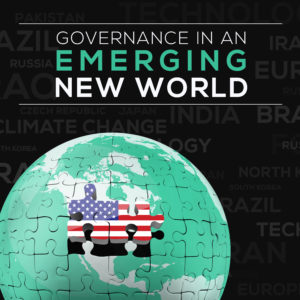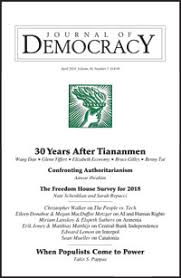 The further along a country is in the demographic transition to low fertility and more mature age structure, the higher the odds of becoming a democracy and the lower the odds of democratic decline, say two leading analysts.
The further along a country is in the demographic transition to low fertility and more mature age structure, the higher the odds of becoming a democracy and the lower the odds of democratic decline, say two leading analysts.
But the world is experiencing two profound demographic transformations that will challenge governance and international relations to extraordinary degrees in the coming decades, according to Jack A. Goldstone, professor of public policy at George Mason University, and Stanford University’s Larry Diamond.
The advanced industrial democracies are experiencing a demographic implosion—a historically unprecedented decline in fertility rates, leading to rapidly aging populations and shrinking labor forces, while portions of the developing world—particularly sub-Saharan Africa, but also parts of the Middle East, South Asia, and Central America—are experiencing demographic explosions of children and youth, they write for the Hoover Institution’s Governance In An Emerging New World series:
If these ongoing changes are managed with vision, foresight, and flexibility, they could reshape many advanced industrial democracies—particularly in Asia and Europe—in ways that make them more diverse, dynamic, and resilient. Managed poorly, they could give rise to growing support for nativist, illiberal, anti-immigrant populist parties and politicians who could pose more formidable challenges to liberal democracy than anything we have yet seen.
![]() Their argument is twofold:
Their argument is twofold:
- First, in the coming decades the world will experience increasingly powerful interactions between demography and democracy, though in dramatically different ways in different groups of countries.
- And second, the challenges confronting the advanced industrial democracies and their economically and politically challenged neighbors to the south are intimately intertwined.
 “Far-sighted policies by the wealthy democracies could help to set in motion urgently needed positive cycles of change in the troubled states on their southern and eastern flanks,” add Goldstone and Diamond, the founding coeditor of the Journal of Democracy and the co-chair of the Research Council of the International Forum for Democratic Studies of the National Endowment for Democracy. “Closed-door policies driven by fear, prejudice, and short-term security considerations—at the expense of longer-term agendas for improved governance and development—could doom both sets of countries to much grimmer futures.”
“Far-sighted policies by the wealthy democracies could help to set in motion urgently needed positive cycles of change in the troubled states on their southern and eastern flanks,” add Goldstone and Diamond, the founding coeditor of the Journal of Democracy and the co-chair of the Research Council of the International Forum for Democratic Studies of the National Endowment for Democracy. “Closed-door policies driven by fear, prejudice, and short-term security considerations—at the expense of longer-term agendas for improved governance and development—could doom both sets of countries to much grimmer futures.”
Jack Goldstone is the Virginia E. and John T. Hazel, Jr. chair professor of public policy at George Mason University and a global fellow of the Woodrow Wilson International Center. Larry Diamond is a senior fellow at the Hoover Institution and at the Freeman Spogli Institute for International Studies at Stanford University. For more than six years, he directed FSI’s Center on Democracy, Development, and the Rule of Law, and he now leads its Program on Arab Reform and Democracy and its Global Digital Policy Incubator.







